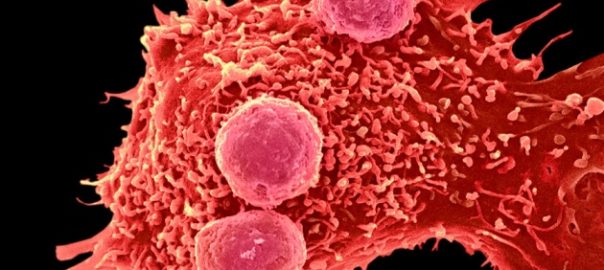CRISPR gene editing technology put to its first clinical test in cancer trial

If all goes according to plan, this August will mark the start of the first clinical trial using cells that have had their genes edited by CRISPR technology. Sichuan University’s West China Hospital has recently been granted permission to begin using the therapy in people with lung cancer1, while earlier in the year a US clinical study, lead by Dr. Edward Stadtmauer of the University of Pennsylvania, was approved and is expected to begin just after the Chinese group2.
CRISPR (Clustered Regularly Interspaced Short Palindromic Repeats) refers to segments of DNA sequences found in many single-celled organisms. In these organisms the CRISPR system plays an essential role in immunity. Recently, its potential for medicine has become greater and greater. CRISPR is being studied to specifically delete and insert genes into various cells, from insects all the way to human cells. Changing the genes of a cell changes the proteins the cell makes, which influences the way a cell functions.
How does CRISPR work in nature?
Simply put, when a virus attacks a bacterium and the bacterium survives the attack, a copy of the viral genetic material is stored in the genetic code of the bacterium as a CRISPR sequence. By knowing the genetic makeup of the virus the bacterium is able to protect itself from future viral attacks by rapidly employing the CRISPR defense system. A protein called CAS9 compares the stored CRISPR code to signs of invading virus. When a sequence is recognized, a fast response to the inbound attack is activated in a way comparable to a primordial version of our own immune system.
How is it used in the lab?
Medical applications for CRISPR are vast and include the treatment of HIV and other incurable viral infections, cancer as well as numerous genetic diseases. In principle, if we have the correct code, CRISPR can be used to equip cells with the tools to prevent and overcome any disease and even counteract the progression of ageing.
Human immune cells can be modified using CRISPR technology to be better equipped to track down and kill viruses as well as cancer cells, while inborn errors in the genetic code could be corrected to gain normal function. For each application a combination of a CRISPR code and a CAS9 protein are combined and used to transfect the target cell. Inside the cell, the information stored in the CRISPR system’s code is used to locate the gene of interest and even insert a correction of the code based on the accompanying repair template. Depending on the type of CAS9 protein, a different effect is achieved on the host DNA, ranging from a simple break in the DNA to modification of a single nucleotide base.
What will the first clinical CRISPR trials do?
The Sichuan University trial will enroll patients with a severe form of lung cancer (metastatic non-small cell), which has not responded to conventional treatment options. The group will isolate T-cells, key players in human immunity, and disable genes in these cells. The target gene in this case is PD1, which normally inhibits the immune system from attacking human cells. The T-cells with a knocked-out PD1 will be introduced back into the patient and hopefully begin attacking cancer cells. The US trial will go even further in a similar patient group, using CRISPR to remove another gene and inserting a gene that will enhance detection of the cancer cells. The Chinese and US trials will include a small group of patients and aims primarily to demonstrate safety of the technique, before moving on to more expansive trials to show efficacy.
Is it all good news?
Genetic engineering does not stop at the treatment of disease. CRISPR gives science a major lead towards embryo modification, i.e. the creation of designer babies. While the motives here are good, aiming at treating disease in the unborn child, many suggest that this is a slippery slope, opening doors for the creation of humans with various favorable traits, drastically changing the human gene pool and human evolution. Ethical consideration is important and opponents are making themselves heard. However, it will be difficult to oppose a technology that has so many potentially groundbreaking benefits for human health.
1 http://www.nature.com/news/chinese-scientists-to-pioneer-first-human-crispr-trial-1.20302
2 http://www.nature.com/news/first-crispr-clinical-trial-gets-green-light-from-us-panel-1.20137
Suggested video by Kurzgesagt – in a nutshell:
http://www.iflscience.com/health-and-medicine/watch-this-video-on-how-and-why-crispr-gene-editing-will-change-the-world/
Image Source: Steve Gschmeissner/Science Photo Library


